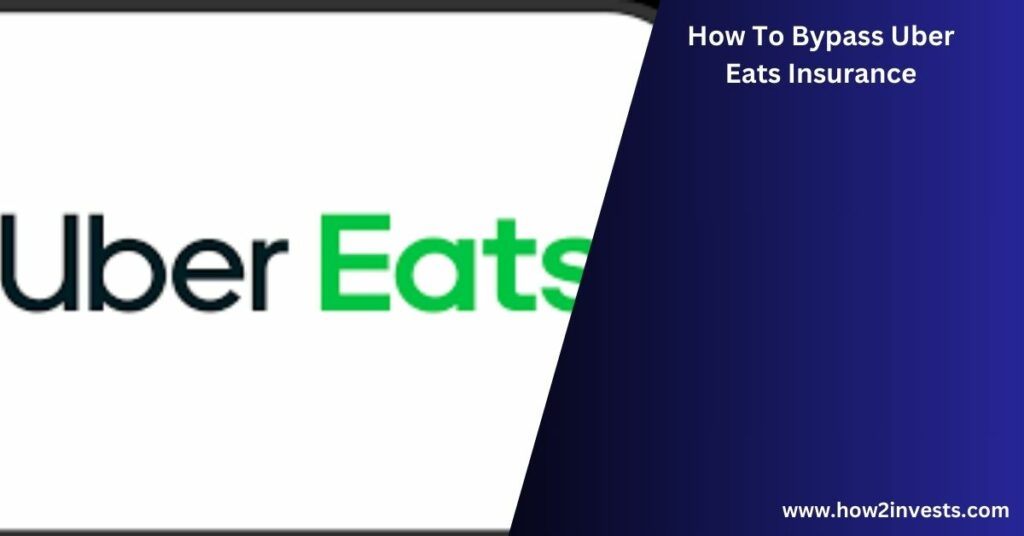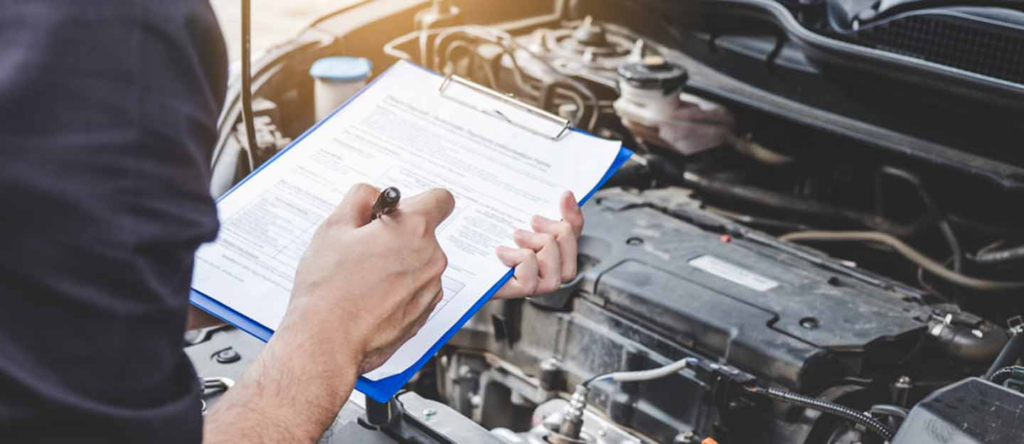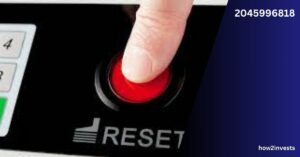How To Bypass Uber Eats Insurance? A Review In 2023

I appreciate your interest in ensuring your safety and coverage while working as a delivery partner for Uber Eats. It’s essential to clarify that attempting to bypass insurance or using fake insurance information is illegal and unethical.
Such actions can lead to severe consequences, including job termination, legal penalties, and potential harm to others involved in an accident. Instead, let’s focus on legitimate ways to protect yourself and ensure you have adequate insurance coverage.
Table of Contents
Understand Uber Eats Insurance:
Before we dive into additional steps, it’s crucial to comprehend the insurance coverage that Uber Eats provides for its delivery partners. Uber Eats typically offers the following coverage:
Liability Insurance: Uber Eats usually provides liability insurance that covers third-party injuries or property damage caused by you while delivering orders. This coverage can help protect you from potential lawsuits.
Contingent Comprehensive and Collision Insurance: This coverage may help with repair or replacement costs of your vehicle if it’s damaged while you’re on active delivery.
Uninsured/Underinsured Motorist Coverage: Uber Eats may provide coverage for accidents involving uninsured or underinsured drivers who are at fault.
Review Your Personal Insurance Policy:
Before considering additional insurance options, review your auto insurance policy. In some cases, your existing policy may provide coverage during delivery work.

However, personal policies might not cover commercial use of your vehicle, so it’s essential to discuss your intentions with your insurance provider to ensure you have the appropriate coverage.
Uber Eats’ Insurance Gaps:
While Uber Eats offers insurance, there may be gaps in coverage, especially during certain phases of your delivery work. These gaps can include periods when you’re online but not actively on a delivery. During these times, your insurance may be the primary source of coverage. It’s crucial to be aware of these gaps and plan accordingly.
Commercial Auto Insurance:
Consider obtaining commercial auto insurance. This type of insurance is designed for individuals using their vehicles for commercial purposes, like delivery. It can provide comprehensive coverage during all phases of your work with Uber Eats. Ensure you discuss your specific needs with an insurance agent who can guide you in finding the right policy.
Keep Accurate Records:
Maintain thorough records of your Uber Eats work, including timestamps for when you’re online, accepting orders, and actively making deliveries. These records can be essential when filing an insurance claim, as they help establish when an accident occurred at your work.

Safety Measures:
Prevent accidents by practicing safe driving habits, obeying traffic laws, and following Uber Eats’ guidelines for safe deliveries. Safety should be a top priority to reduce the risk of accidents.
Gap Coverage Options:
One of the key aspects to address in ensuring your insurance coverage is covering potential gaps. Even with Uber Eats’ insurance and your auto insurance, there can be moments when you’re not completely covered. Here are some gap coverage options:
Rideshare Insurance: Some insurance providers offer rideshare insurance policies, which are specifically designed for individuals who work for companies like Uber Eats. These policies can bridge the gap between your auto insurance and the coverage provided by Uber Eats. It’s essential to explore this option with your insurance provider to ensure seamless coverage during all phases of your delivery work.
Pay-Per-Mile Insurance: Pay-per-mile insurance is another option to consider. It charges you based on the number of miles you drive, and it’s particularly beneficial if you use your vehicle primarily for work. This can be a cost-effective way to ensure that you’re only paying for insurance during the time you’re actively working for Uber Eats.
Proper Vehicle Maintenance:
Maintaining your vehicle in excellent condition is crucial for safety and insurance purposes. Regular maintenance can reduce the risk of accidents and vehicle breakdowns while also demonstrating your commitment to safety to your insurance providers. Here’s what you can do:

Scheduled Maintenance: Follow a regular maintenance schedule, which includes oil changes, tire rotations, brake inspections, and other essential checks. This can help prevent breakdowns and accidents due to mechanical failures.
Keep Records: Maintain records of all maintenance and repair activities. These records can be valuable when processing insurance claims and establishing that your vehicle was in good condition at the time of an accident.
Reporting Accidents Promptly:
In the unfortunate event of an accident while delivering for Uber Eats, it’s crucial to take immediate action. Prompt reporting can make the claims process smoother. Follow these steps:
Contact the Authorities: First and foremost, ensure the safety of all parties involved. If there are injuries or significant damage, call the police and seek medical attention.
Notify Uber Eats: Report the accident to Uber Eats through their app or designated channels as soon as possible. They can guide you on how to proceed with insurance claims and offer support.
Contact Your Insurance Provider: Inform your auto insurance provider about the accident. They may need to coordinate with Uber Eats’ insurance to determine coverage and responsibilities.
Understanding Deductibles and Coverage Limits:
It’s essential to be fully aware of the deductibles and coverage limits associated with your insurance policies. Deductibles are the amount you’re responsible for paying before your insurance coverage kicks in. Coverage limits refer to the maximum amount your insurance will pay for specific types of claims.
Review Policy Details: Thoroughly read and understand your insurance policies to know the deductible amounts and coverage limits. This knowledge will help you plan your finances and expectations in the event of an accident.
Balance Coverage: You can adjust your coverage levels and deductibles based on your financial situation and risk tolerance. Keep in mind that higher coverage levels may result in higher premiums, while higher deductibles can reduce your monthly costs but require more out-of-pocket expenses in case of a claim.
Conclusion:
In conclusion, while it’s important to safeguard yourself and ensure you have adequate insurance coverage while working for Uber Eats, it’s imperative to do so legally and ethically. Bypassing insurance or using fake information is not only against the law but can also lead to severe consequences.
Understanding Uber Eats’ insurance offerings, reviewing your personal insurance policy, addressing gaps in coverage, and considering commercial auto insurance are all legitimate ways to protect yourself and others while delivering for Uber Eats. Always prioritize safety and adhere to ethical practices in your work.


